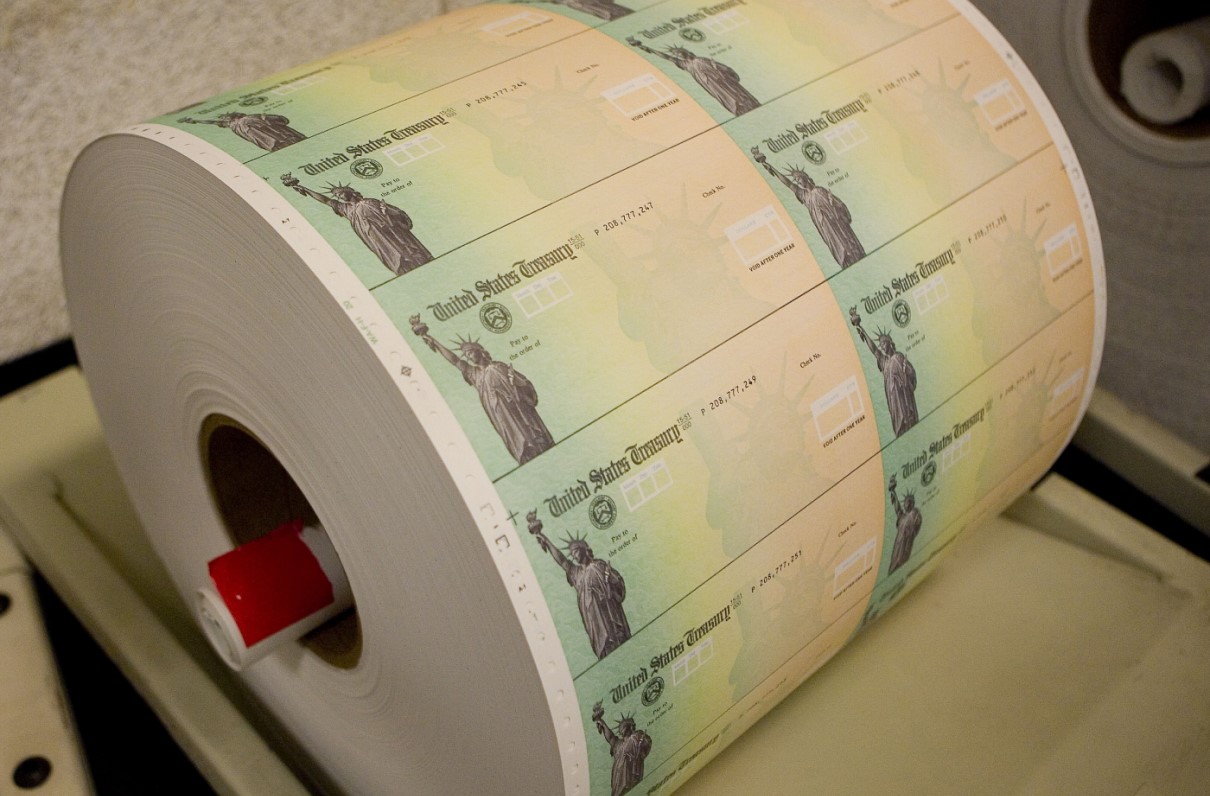This article by Leo Shane III originally appeared on Military Times, the nation's largest independent newsroom dedicated to covering the military and veteran community.
Treasury officials have set a new May 5 deadline for veterans with dependents who missed out on coronavirus stimulus checks earlier this month, warning that some of the money could be delayed until spring 2021 if they don’t act soon.
The deadline is the latest in a series of timelines and confusing public statements by the department and Internal Revenue Service leaders regarding when veterans will receive their stimulus checks, which can total $1,200 per individual and $500 per dependent.
Last week, after announcing plans to help veterans get the checks, officials announced that veterans would have only two days to register for the dependent payouts, setting off a scramble among advocacy groups and lawmakers to get veterans signed up. IRS leaders later backed off that deadline, opting only to say the registration needed to happen “soon.”
This weekend, officials set a firmer deadline of May 5. The IRS is also launching a more formal public education campaign about the deadline and their online registration tools to increase awareness among veterans.
At issue are disabled veterans who receive payouts from the Department of Veterans Affairs but do not earn enough income to file tax returns annually. Veterans who file tax returns each year are not affected, and should have already received their stimulus payouts.
[RELATED: Investments in a Pandemic: Meeting Your Needs in Retirement]
But veterans who don’t file annually may not have any bank accounts or contact information on file with the IRS, making it more difficult for the agency to get them the money.
Veterans Affairs and Treasury officials on April 17 announced a partnership to get the stimulus funds to the lower-income veterans through their VA disability benefits accounts. That process will happen automatically, without any extra paperwork from veterans.
However, IRS officials said they do not have records of whether those veterans have dependents. If they do, but do not make contact with the agency, the veterans will receive their $1,200 individual payout this year, but not the additional dependent money.
Instead, that dependent payout will be applied to next year’s tax returns, to be paid out in spring 2021.
[RELATED: How to Request a TRICARE Fee Waiver for COVID-19 Tests, Related Office Visits]
“They need to act quickly and use the non-filers tool on IRS.gov to get the extra $500 per child added to their payment,” said IRS Commissioner Chuck Rettig in a statement.
The IRS site requires veterans to submit their names, Social Security numbers (including for spouse and dependents), mailing address and a bank routing number where the money can be sent.
Numerous lawmakers have spent recent days pushing Treasury and VA officials to extend the deadlines for filing, saying that the money could be crucial for veterans with limited annual income.
The new May 5 deadline also applies to Supplemental Security Income recipients as well as veterans.
IRS officials have promised that veterans still awaiting their $1,200 payments should see stimulus checks starting soon. Social Security retirement recipients, survivors or disability insurance benefits participants and Railroad Retirement beneficiaries are scheduled to receive their checks in early May.
The stimulus checks were part of a $2 trillion economic relief package passed by Congress at the start of April.
More from Military Times:
Pentagon focusing on most vital personnel for virus testing
West Point plans to mass test and soft quarantine cadets coming back to graduate
Train likely belonging to Kim Jong Un spotted in satellite imagery amid health rumors
Support MOAA's COVID-19 Relief Fund
Donate to help The MOAA Foundation address emerging needs among currently serving and former uniformed servicemembers, retirees, and their families.


